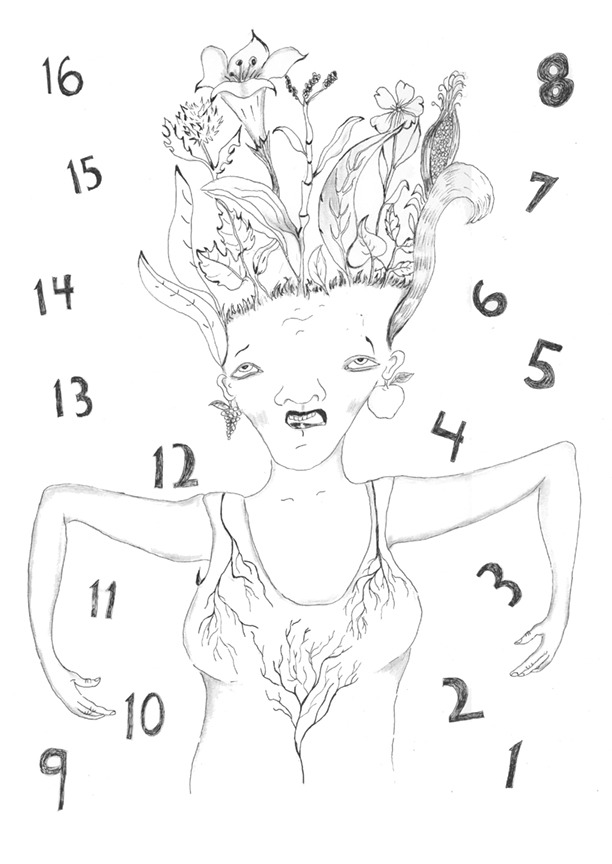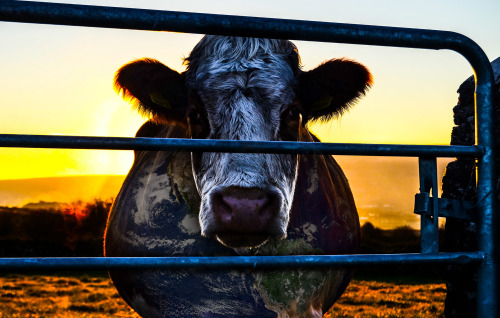
It’s out! The Sierra Club’s draft proposal “Agriculture and Food Policy” put together in the wake of the movie “Cowspiracy” is now available for us all to see.
To take a look at it you will have to use this username and password:
Username: clubhouse
Password: explore
Vegans, if you were hoping for some truth and leadership from the Sierra Club, well, forget it.
You would have thought that after the Sierra Club was so thoroughly drubbed by “Cowspiracy” last year that they’d come clean and admit that the livestock industry is slaughtering the environment right along with at least 50 billion land animals a year.
You would have thought they’d man up and tell people to stop eating animals if they don’t want to get drowned/starved/burned up/dried up/displaced by climate change. OK, that was vicious of me. But you would have thought they would at least urge people stop eating animal flesh and secretions for the sake of the habitability of the planet. For the sake of our kids.
No.
In the club’s new draft version of their Food and Agriculture Policy, the best we get is a suggestion (nearly at the end of the report) that we develop “a greater reliance on vegetable protein.” Yet in the first paragraph of the report we read that, according to the Sierra Club, raising animals for food is an “essential human activity” and “irreducibly cultural.”
Huh?
Tell that to the millions of healthy, happy, active, alert vegans out there that raising animals for food is an “essential human activity.” Tell that to the 99 percent of Americans who never even consider raising and slaughtering their own animal food. And “irreducibly cultural”? Earth to Sierra Club: Cultures change. If they didn’t we’d still be burning “witches” at the stake.
More Earth to the Sierra Club: The livestock sector is responsible for at least 14.5 percent of greenhouse gas emissions and maybe as high as 51 percent. Livestock production is responsible for 90 percent of the destruction of the Amazon rainforest. It takes 100 times more water to produce a pound of animal protein versus a pound of plant protein. It takes 15 times the land.
Livestock production is the cause of most of the water pollution in the United States. And fish eating has been largely responsible for the decimation of the ocean fish populations.
All that information is easily accessible by reading, for example, “Livestock’s Long Shadow” a 2006 report by the Food and Agriculture Organization of the UN or (even better) The World Watch Institute’s “Livestock and Climate Change” or listening to renowned oceanographer Sylvia Earle. Eating animal foods is an environmental disaster and everybody seems to know that but the Sierra Club.
Even freaking Time magazine wrote last year that single most powerful thing you could do as an individual to help save the environment was to cut out eating meat.
And even the January monthly magazine for Costco (!) had two vegan recipes!
Sierra Club, where are you?
Well, in their draft proposal the club does say that factory farms are bad. But it says that rotational grazing (where animals are moved from pasture to pasture) is good, not just good but great, even though they should know that pasture-grazed animals produce more green house gas than grain fed animals!
From the report: “Appropriately managed, grazing can have a significant positive role in building soil organic matter, increasing plant and wildlife biodiversity and weed management.”
If grazing animals was so terrific for biodiversity, for example, why is the Bureau of Land Management (federal agency) protecting (privately owned) livestock by killing 1.5 million wild animals a year? Why has the huge loss of the South American rainforest to pasture and/or to grow feed crops been seen not only as a major threat to our supply of oxygen, and a major contributor to climate change, but also a huge loss of biological diversity?
Yet the Sierra Club draft report keeps going: “Grazing and pasturage, which recycle animal wastes back into the soil, have the potential to transform vast amounts of coarse forages into food products… Animals raised on perennial forage pastures cause far less soil erosion and nutrient loss compared with animals in confinement being fed crops from annual row cropping.”
We’re not sure where this assessment comes from (outlier biologist Allan Savory perhaps?) and it certainly flies in the face of what many, many other environmentalists, such as the Center for Biological Diversity, have to say about livestock grazing:
“Cattle destroy native vegetation, damage soils and stream banks, and contaminate waterways with fecal waste. After decades of livestock grazing, once-lush streams and riparian forests have been reduced to flat, dry wastelands; once-rich topsoil has been turned to dust, causing soil erosion, stream sedimentation and wholesale elimination of some aquatic habitats.”
The Sierra Club seems to be besotted with so-called “sustainable” animal food production, which presumably would prevent overgrazing. My question is where is that all that virgin pasture land going to come from. Maybe another planet?
Fully ½ of the grazing land in the United States is already overgrazed according to the World Watch Institute and an amazing 70 percent of the land in the western United States is ALREADY being grazed by cattle.
The Institute has said there is simply no more pasture to be had and if we want more pasture we’re going to have to cut down more forests. If you want to head off climate change, that would be an extremely bad idea. Rain forest stores carbon at about 200 tons per hectare whereas forest cleared for grassland stores only 8 tons per hectare.
Go vegan. Plant a tree.
There has been a lot of speculation as to why the Sierra Club has jumped on the “sustainable meat” bandwagon. A couple of theories that keep jumping to the foreground is that the leadership of the Sierra Club and indeed the general membership likes to eat animal foods. According to the producers of “Cowspiracy,” Bruce Hamilton, Conservation Director for the Sierra Club said off-camera that he eats grass-fed beef.
Bruce please! Grass-fed cattle produce MORE greenhouse gas than grain fed cattle
The other theory that was suggested by the movie “Cowspiracy,” but never actually proved was that the Sierra Club and other environmental groups were taking donations from ranchers. Now the cat’s out of the bag, so to speak. In a recent essay, executive director of the Sierra Club Michael Brune wrote that the club has received donations from billionaire hedge fund manager and grass-fed cattle rancher, Tom Steyer.
If you’d like to learn more about that, check out the Dec. 28, 2014 radio interview by environmental activist and author of “Western Turf Wars: The Politics of Public Lands Ranching,” Dr. Michael Hudak.
Years ago I became a life-time member of the Sierra Club by donating about $1,000. I’ve never been actually involved in the group but believed they were doing good work.
These days because of the organization’s reluctance to seriously address the environmental impact of the livestock industry I’m not so sure about the Sierra Club any more.
My financial resources are limited and I can’t compete with billionaires such as Tom Steyer to get the attention of the Sierra Club. But maybe if there are enough of us squawking, we can have an impact on this oldest and largest environmental group in the country.
The Sierra Club is taking comments from its members on the proposed “Agriculture and Food Policy” until Jan. 15.
Again you have to access the Clubhouse site to view that page:
Username: clubhouse
Password: explore
If you are a member of the Sierra Club you can comment on the proposed policy until January 15, 2015 here.
You also need to access the Clubhouse site to view that page:
Username: clubhouse
Password: explore

